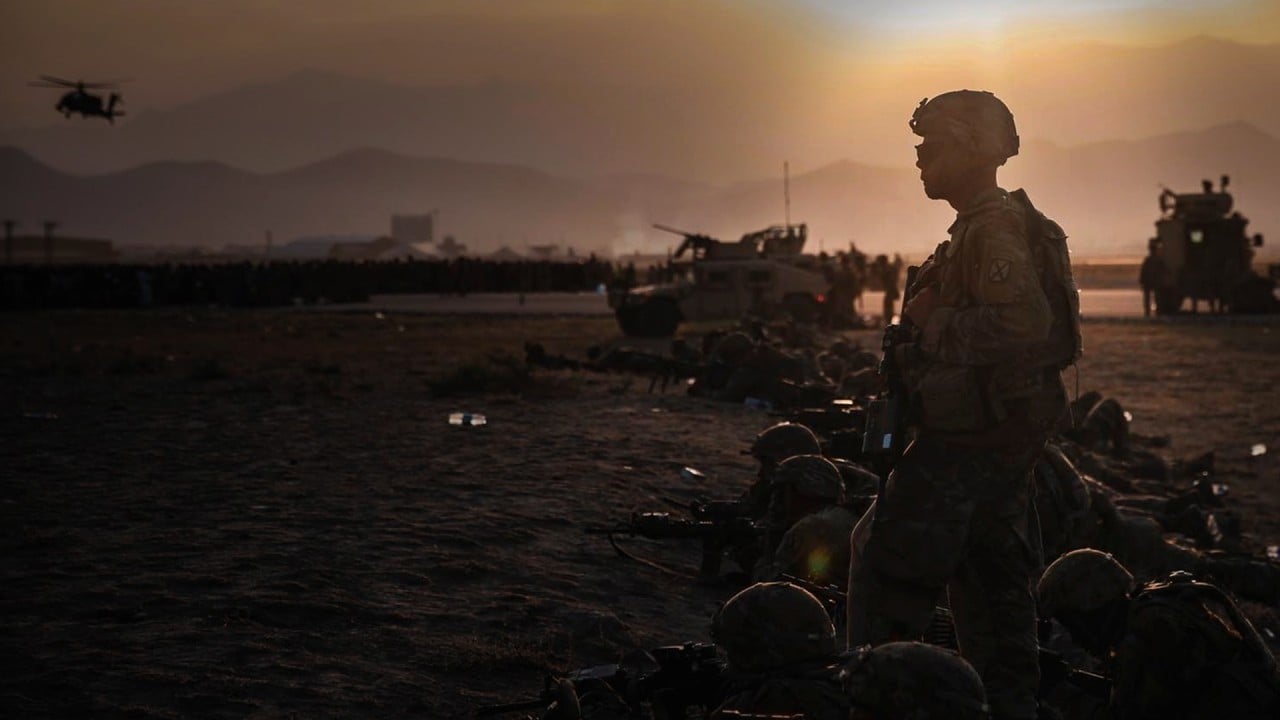
14:01
20 years in Afghanistan: a timeline of America’s 'forever war'

The deadly terrorist attacks against the United States on September 11, 2001 prompted an outcry from around the world: “We are all Americans.” But even before the dust had settled around the World Trade Centre, Washington’s policies realigned around fighting terrorism and bilateral relationships strengthened or crumbled depending on where other governments stood. Wars and occupations ensued, ending in a rushed military withdrawal from Afghanistan by US forces last month. In the second in a series about the legacy of 9/11, Tom Hussain explores the prospects of the US and Taliban leaders now working together to combat a common rival – Isis-K.
After years of enmity, prospects for an alliance between the West and the Taliban to combat a common rival – a regional chapter of the jihadist group Islamic State (Isis) that was behind last week’s deadly attack at Kabul airport – are growing, analysts say.
Pentagon officials in Washington hinted at this on Wednesday, even as they expressed some wariness, with Defence Secretary Lloyd Austin saying the United States was working with the Taliban on “a very narrow set of issues”.
“It’s hard to predict where this will go in the future with respect to the Taliban,” he said.
But when asked at the same briefing if the military would cooperate with the Islamist group – which will lead the new government in Kabul – on fighting Islamic State Khorasan Province (Isis-K), General Mark A. Milley, chairman of the Joint Chiefs of Staff, said: “It’s possible.”
Two security experts told This Week in Asia the Taliban might have provided intelligence to the US for its recent retaliatory drone strikes against Isis-K militants near the city of Jalalabad and in Kabul. The terror group operates in Afghanistan and Pakistan.
The August 26 suicide bombing and assault on the Kabul airport killed some 170 civilian evacuees and 13 US soldiers, with the Taliban saying at least 28 of its fighters manning the security perimeter at the airport also died in the attack.
Faran Jeffery, deputy director and head of the South Asia desk on terrorism at the Britain-based Islamic Theology of Counter Terrorism (ITCT) think tank, pointed out that Jalalabad was effectively under Taliban control, so it was “entirely plausible the Taliban could have helped in some way with pinpointing the target [through its] vast network of spies and informants”.
Michael Kugelman, senior South Asia associate at the Washington-based Wilson Center, drew a similar conclusion, saying one could not “rule out the Taliban having provided intelligence to the US about the location of Isis-K members targeted in US air strikes in recent days”.
“The US has looked to the Taliban as a least-bad option for potential counterterrorism cooperation, but that has largely been aspirational more than real. Recent signalling from Washington, however, suggests that it may be amenable to pursuing real cooperation,” he added.
Talk of an alliance comes two decades since then president George W. Bush declared following the September 11 attacks that the Taliban was a sworn enemy for “aiding and abetting murder”.
Washington had already relied on the Taliban for some elements of security protection at the Kabul airport in the run-up to the final withdrawal of its troops on Tuesday, and prior to that had provided limited intelligence to the group in their crackdown on terrorism.
“The idea of the US partnering with the organisation that killed its soldiers for nearly two decades is certainly quite unpalatable. But then again, interests typically trump morality in international relations,” Kugelman said. “The US will partner with the Taliban if it thinks that can best advance its interests in degrading the Isis-K threat.”

14:01
20 years in Afghanistan: a timeline of America’s 'forever war'
The seeds for the wary alliance between Western powers and the Taliban were first planted during four years of apparently coordinated fighting against Isis-K militants for control of the eastern Afghan province of Nangarhar.
Led by dissident faction leaders of the Pakistani Taliban, Isis-K’s ranks include several thousand hardened Pakistani, Afghan and Uzbek militants.
Between 2016 and last year, Isis-K fighters in Nangarhar and Kunar provinces were simultaneously attacked by Afghan government forces, local militias, and Taliban units, while at the same time being targeted by US drones and special forces – although the extent of coordination remained unclear, analysts Jeffery and Kugelman said.
At the height of its power in 2018, Isis-K had seized control of eight districts of Nangarhar and attempted to expand into the adjacent provinces of Kunar and Zabul.
The group’s presence in Nangarhar was quashed a month before the US and the Taliban in February last year signed a peace deal in Qatar that paved the way for the withdrawal of US-led forces.
That March, General Kenneth “Frank” McKenzie, head of the US Central Command that oversees military operations in Afghanistan and the Middle East, gave the first official acknowledgement of American cooperation with the Taliban against Isis-K when he said the US had given the Taliban “limited support” in its fight.
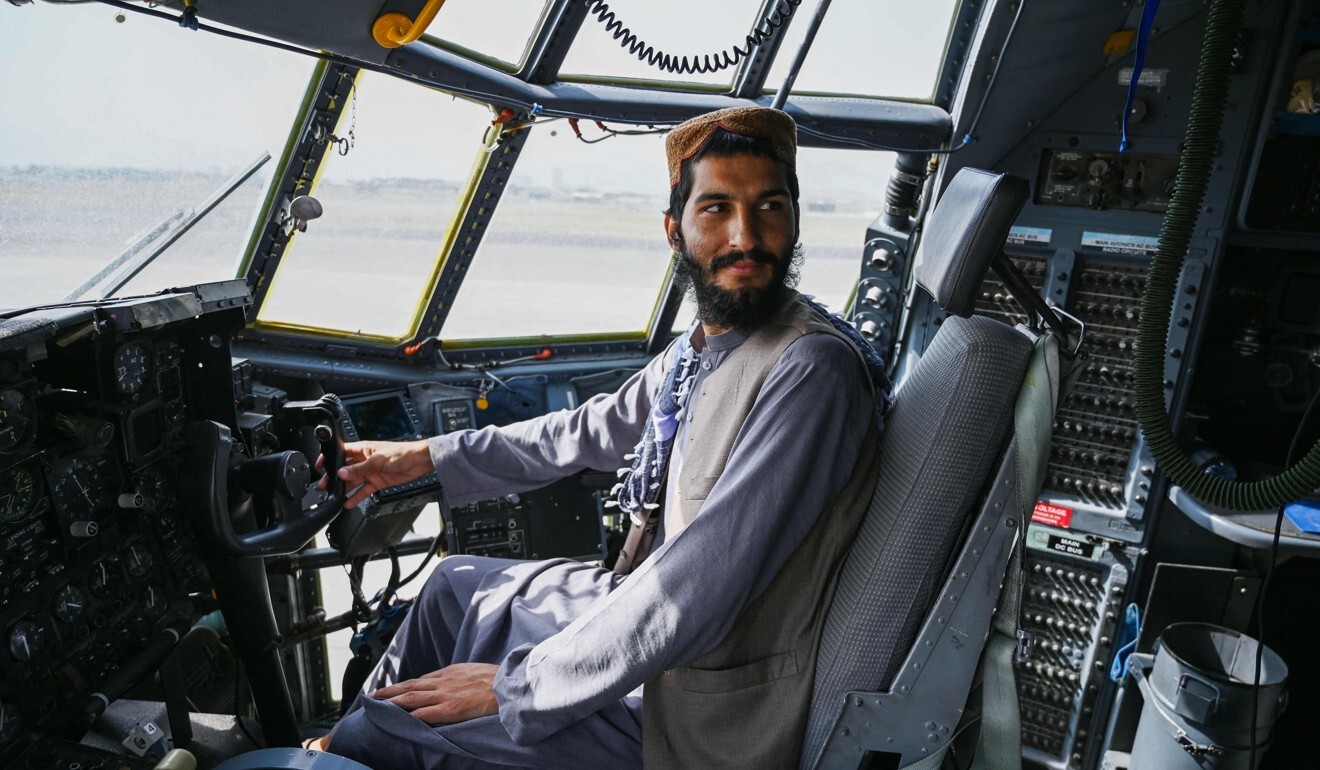
He made similar comments at a press briefing on August 26 after the Kabul airport attack.
“We share versions of this information with the Taliban, so that they can actually do some searching out there for us. And we believe that some attacks have been thwarted by them,” he said. “We cut down the information we give the Taliban, they don’t get the full range of information that we have, but we give them enough to act in time and space to try and prevent these attacks.”
US President Joe Biden, also speaking after the airport attack, explained US intelligence-sharing with the Taliban by saying it is “in the interest of the Taliban that in fact Isis-K does not metastasise beyond what it is”.
Likewise, Biden said American dependence on its long-time adversary to secure the perimeter of the airport was “not a matter of trust – it’s a matter of mutual self interest”.
On Tuesday, in his first comments after the final pull-out of US troops, Biden said his priority was making sure Afghanistan would never be used to launch an attack on the US.
The Taliban has similar political motivations for working with the US and other foreign powers, said Abdul Sayed, a Sweden-based security specialist on radical militant groups in Afghanistan and Pakistan.
“The Taliban has always considered Isis-K as a real threat to its monopoly on the jihadist landscape and now to the writ of its government in Afghanistan, so I do not think they have neglected this threat at any time,” he said.
Security experts Jeffery and Kugelman, however, think the Taliban’s leadership – while pragmatic in dealing with the international community – would hesitate to admit the group had cooperated with the US against Isis-K, as this would upset its inherently anti-American radical Islamist support base.
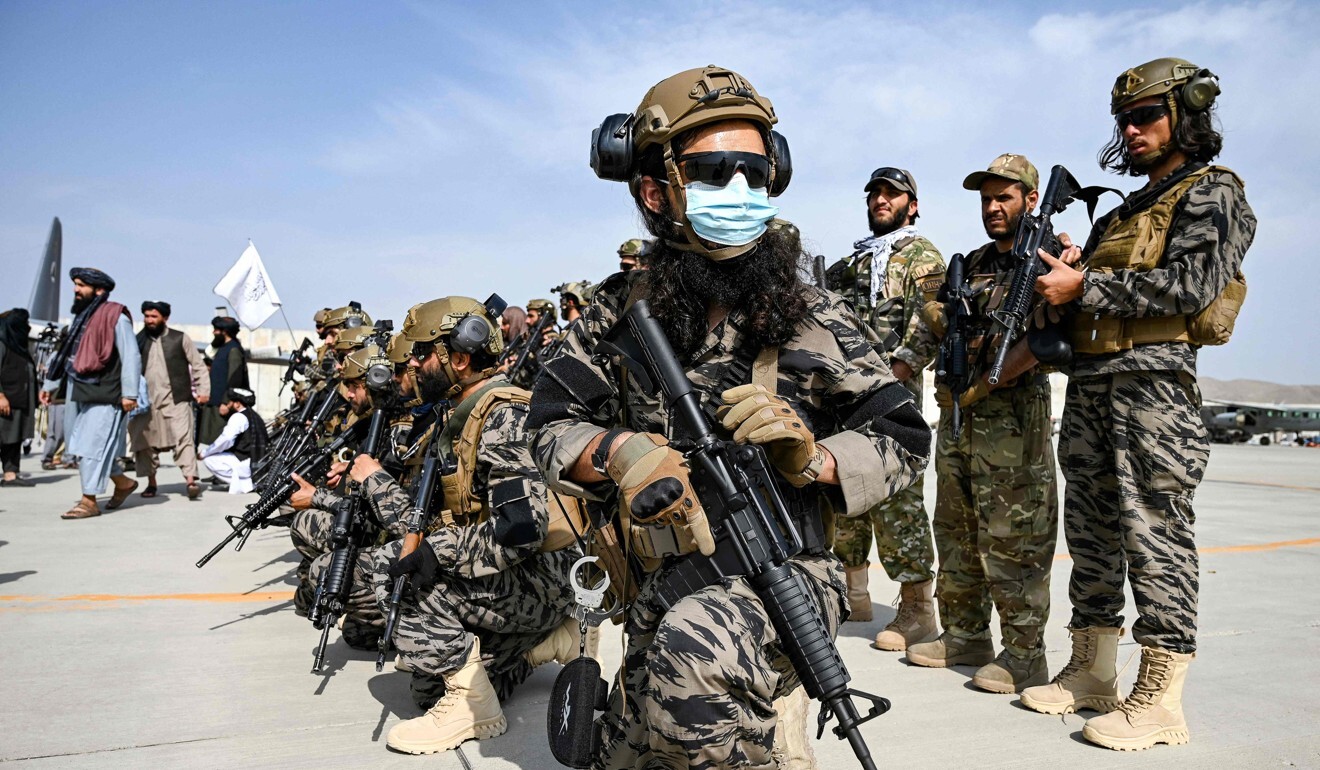
Indeed, Taliban spokesman Zabihullah Mujahid on Monday described the US retaliation against Isis-K on Afghan soil as unlawful, in response to questions posed by China’s state-run television network CGTN.
The US launched an air strike in Jalalabad last Friday, followed by a Sunday missile attack in Kabul on a vehicle packed with explosives that was driven by an Isis-K suicide bomber – the latter reportedly causing the deaths of 10 civilians, including children.
Yet his condemnation was muted, as he did not warn Washington against conducting further attacks.
Instead, he said the US should have provided intelligence to the Taliban to take action on the ground.
“If there was any potential threat in Afghanistan, it should have been reported to us, not an arbitrary attack that has resulted in civilian casualties,” Mujahid said.
From 2013 onwards, the Taliban’s diplomatic engagement with the US through its political office in Doha had angered hardliners and prompted several prominent commanders to defect to Isis-K in 2015.
Some of them were subsequently killed in US air strikes in Taliban-controlled areas during fighting between the rival militant groups – and the significance of similar incidents occurring over the past five years is not lost on the analysts.
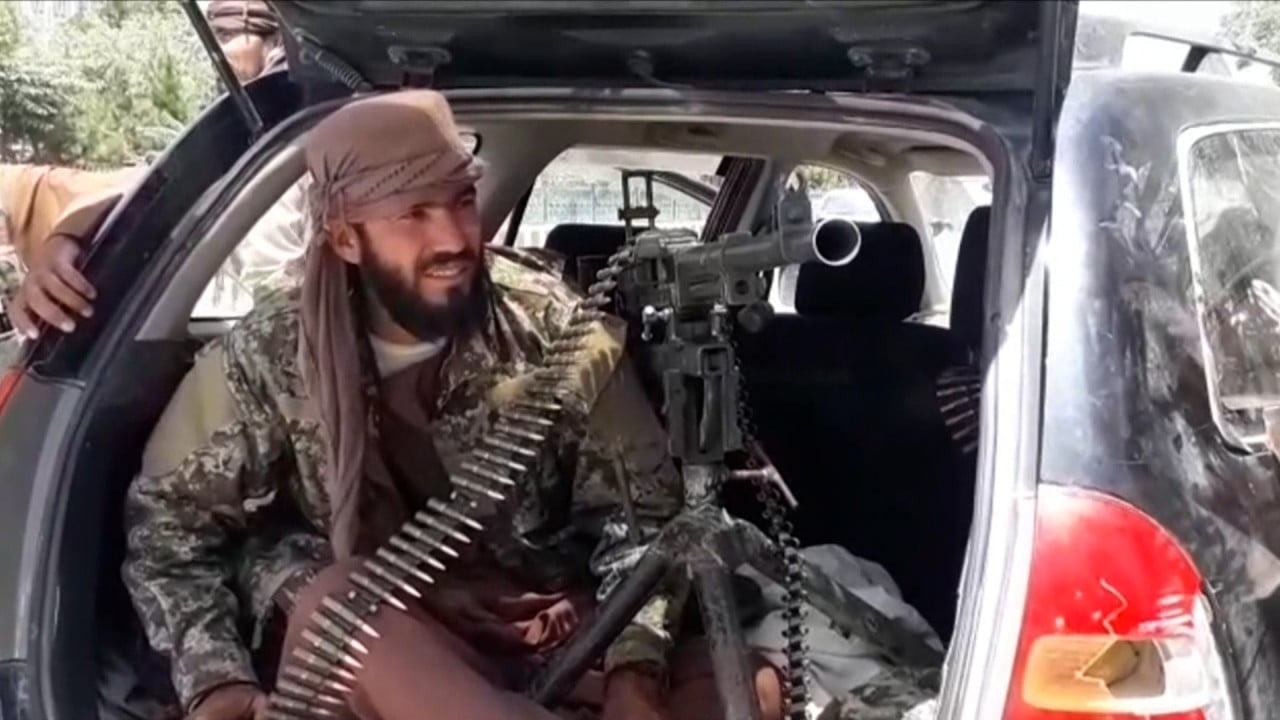
03:10
Taliban seizes control of second-largest city Kandahar in key moment in Afghanistan conflict
They are therefore sceptical about press reports citing anonymous US military sources claiming that American officers overseeing drone flights above Kunar during a coordinated offensive against Isis-K in 2019-20 did not directly communicate with Taliban commanders on the ground.
Instead, the US military reportedly monitored Taliban communications while American drones surveyed the battlegrounds for Isis-K activity – before carrying out air strikes that enabled the Taliban to capture territory from the Isis affiliate.
“According to my understanding, these decisions cannot be taken by mid-level US military commanders on the ground, and instead had to come from the very top of the Pentagon,” said Jeffery of ITCT.
“It likely means that the Taliban political leadership in Doha was also aware of these operations and might have even played a role in intelligence sharing,” he said. “Of course, the only thing that is officially confirmed is what General McKenzie has disclosed.”
Jeffery said the Taliban would be open to accepting US air support for any future ground operations against Isis-K, but would not acknowledge it publicly and would even continue to accuse Washington of creating Isis-K.
“But that’s just for public consumption. The Taliban leadership understands that it’s not just the US that has concerns regarding international terrorist groups in Afghanistan – other states such as China, Pakistan, Russia, India and Iran have very similar concerns,” Jeffery said.
It was important to remember that the US considered Isis-K an international terror group, he added, whereas it never designated the Taliban as one. “To this date, the understanding in the US intelligence community is that the Taliban is a localised group with localised objectives.”
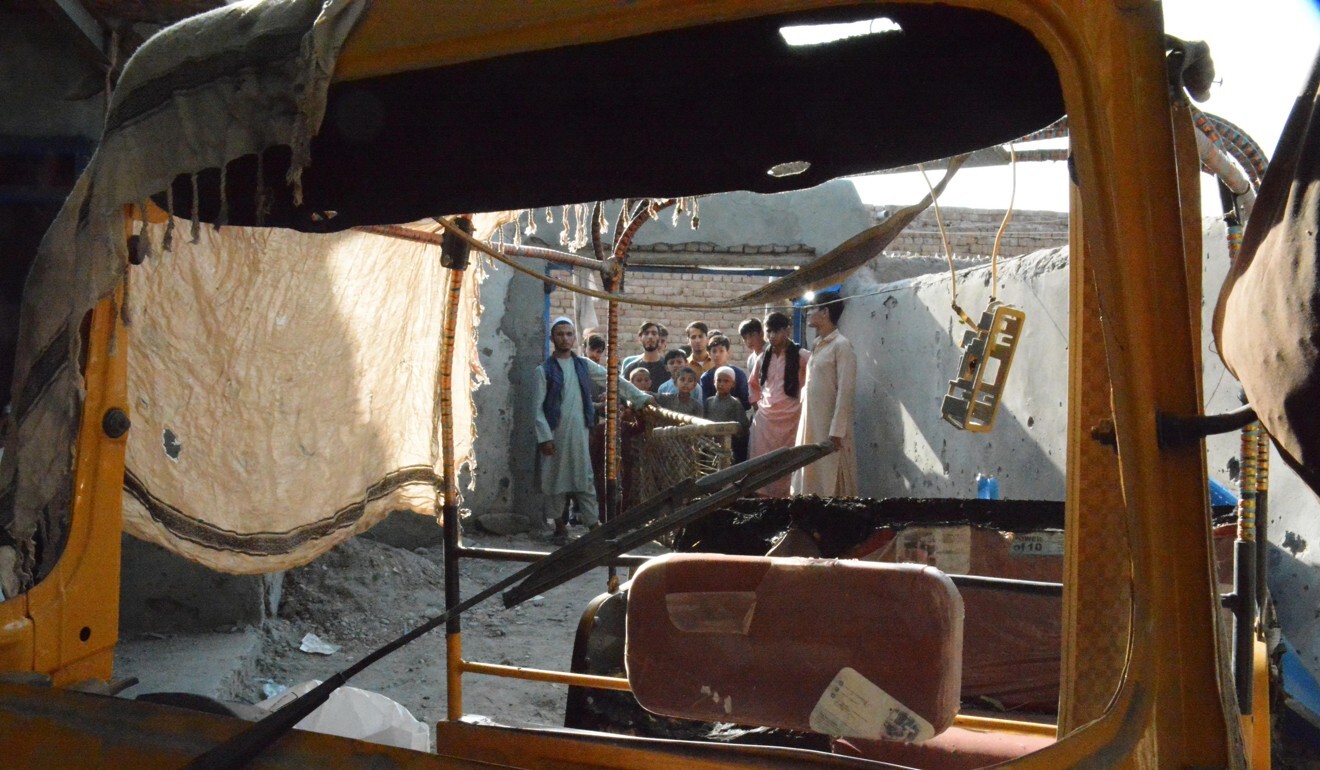
Kugelman of the Wilson Center said the US would also be “tempted to pursue a marriage of counterterrorism convenience” with the Taliban, given that it no longer had boots on the ground in Afghanistan – nor arrangements in places to base US counterterrorist forces in neighbouring countries – and has vowed to go after those responsible for the Kabul airport blast.
While the Taliban has pledged to crack down on terrorism after the US withdrawal, analysts said the group was preoccupied with the challenge of forming a new government and would not be in a position to go after Isis-K in retaliation for the airport attack.
During its disorganised takeover of Kabul, the Taliban executed some imprisoned Isis-K militants, including its second-in-command, but failed to prevent the escape of many others when it opened the gates of the city’s jail to free their own colleagues.
Abdul Sayed, the Sweden-based analyst, said local Taliban fighters in Nangarhar were searching for the Isis-K militants they fought brutal wars against, but their foes had gone into hiding.
“It seems all Taliban campaigns at this level are due to personal grudges and for the purpose of revenge,” he said.
While the Taliban was well placed to gather and share intelligence about Isis-K members, it was operating as an underground network and would be difficult for the Taliban to identify and target, Abdul Sayed said.
There was also the concern that Isis-K “foot soldiers and sympathisers could infiltrate the Taliban ranks”, he added.